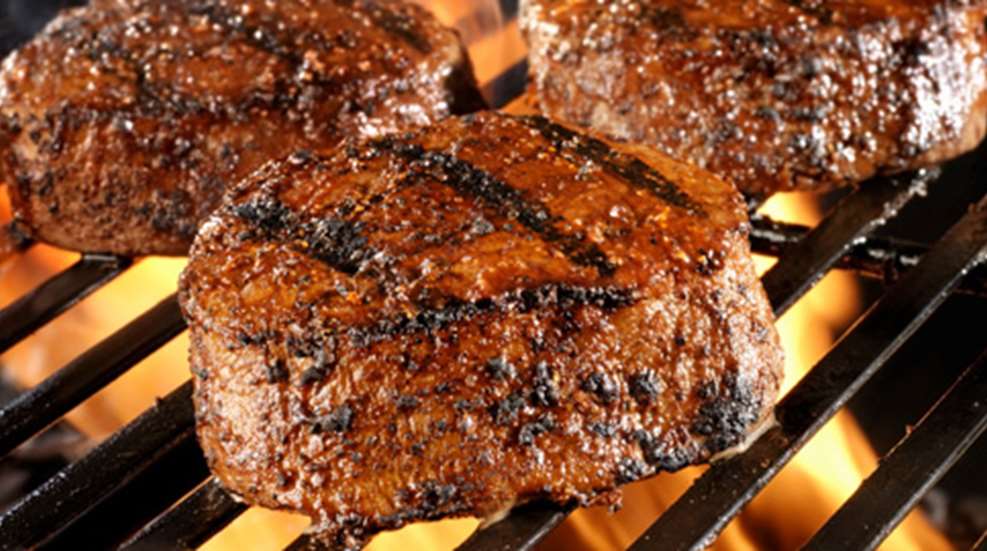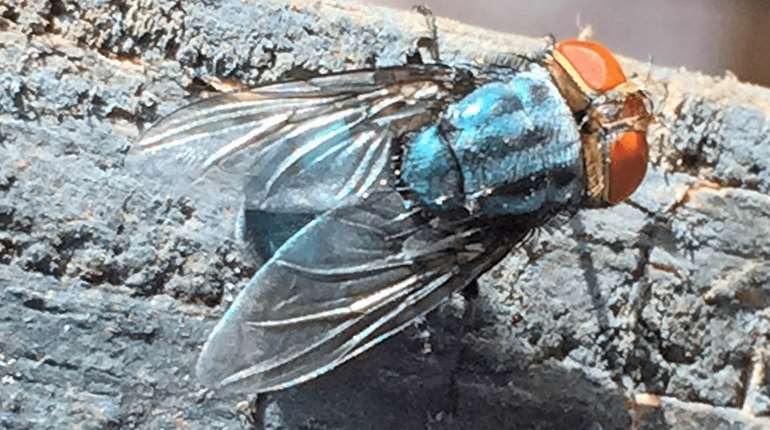
With summer almost upon us, many of us are starting to dust off our grills to get them ready for a summer of outdoor cooking. Grilling is one of my favorite pastimes. It is social cooking, where friends and neighbors come over, frosty drinks come out of the cooler and the air smells like roasting meats and burning charcoal for miles. Here are my top five tips for getting the most out of cooking on a grill, particularly if you decide to cook wild game.
Go Big.
Grill thicker cuts of meat, particularly in the case of wild game, since you're not dealing with a lot of fat and you don't want to overcook it. For red meat, I suggest cooking it to no more than medium rare. Otherwise, you'll end up with some strange gray matter that is much gamier tasting. If you do end up using domestic meat, the marbling is fine, but you'll want to trim off any excess fat around the edges. If you need to grill a thinner cut, be prepared to grill the meat for a very short time, around a minute or two per side.
Marinate.
Marinades are particularly good with red meat and ungulates and for any tougher cuts of meat. They have been used since the Renaissance, when their primary purpose was to reduce spoilage and impart flavor. They are made with an acidic liquid such as vinegar, wine, citrus juice, buttermilk or yogurt, and serve two different functions-as a tenderizer and as a flavor enhancer. A good marinade will have a balance of ingredients so that the outer surface of the meat does not become too sour from the acid.
Once the meat is fully immersed, the acid breaks down the fibrous proteins and increases the meat's ability to retain moisture. The addition of salt will allow the meat to retain even more moisture. Whichever marinade you choose, you should marinate the meat in the refrigerator to prevent bacterial growth. And you should discard all used marinade at the end. If you want to use it later as a sauce, set some aside before you marinate. Once a piece of meat has been marinated, it is best not to freeze it because the outer layer will become mushy.
Brine.
This is an especially good technique for white meats and ducks with skin that may be fishy.Brining is an old-fashioned technique that involves soaking meat or poultry in a flavorful saltwater solution to enhance its moisture and taste. The proper ratio is 2 tablespoons of salt to 4 cups of water. Brining does not break down the proteins in the meat the way that marinating does. Instead, it carries salt and sugar inside the cell walls of the meat through osmosis, which causes the proteins to unravel, interact with one another and form a matrix that traps moisture inside the meat. The true purpose of brining is juciness, where the true purpose of marinating is tenderization. It is a good idea to "rest" a piece of meat once it comes out of a brine to allow the moisture to retreat back into the meat, for up to 24 hours in the refrigerator.
Don't touch.
Resist the urge to move the meat once it hits the grill. You should only touch it with tongs once while it cooks in order to flip it. Otherwise, it should be left unmoved. A piece of protein isn't ready to be moved until it is completely loose from a pan or grill. If it sticks at all, it isn't ready. As it sits and cooks the proteins are caramelizing and creating a surface that will lock in moisture. By moving it too early, you tear the surface and release the juices. This is especially important for wild game.
Let it rest.
It is important to let all meat rest for at least 15 minutes before you serve it. This allows the juices to retreat back into the center of the meat as it cools. Cutting into it too soon will release all of the juices onto the cutting board when they should end up on your palate! That is where the flavor lies, after all. Have tin foil ready and completely enclose the meat in tin foil before cutting into it. That is when I often add flavoring elements, like a dash of apple juice to ribs or a sprinkle of dry rub. I will often let them sit in the tin foil for up to an hour. This means you can plan ahead and start cooking before your guests arrive. Transferring the tin foil packages to empty coolers is another way to ensure they stay warm.




































